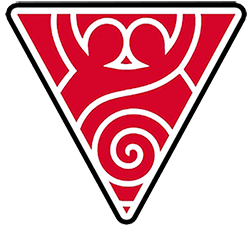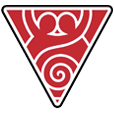Sofia Tomasoni e Marion Couturier, due giovani atlete professioniste, hanno condiviso in questa intervista la loro esperienza con il Cammino di Sophia durante i tre giorni di Rezo a Fuerteventura. Entrambe hanno trovato nel viaggio e nella spiritualità un modo per riflettere sulla loro vita e sul loro lavoro, riscoprendo la forte connessione che le lega al mare e al vento.
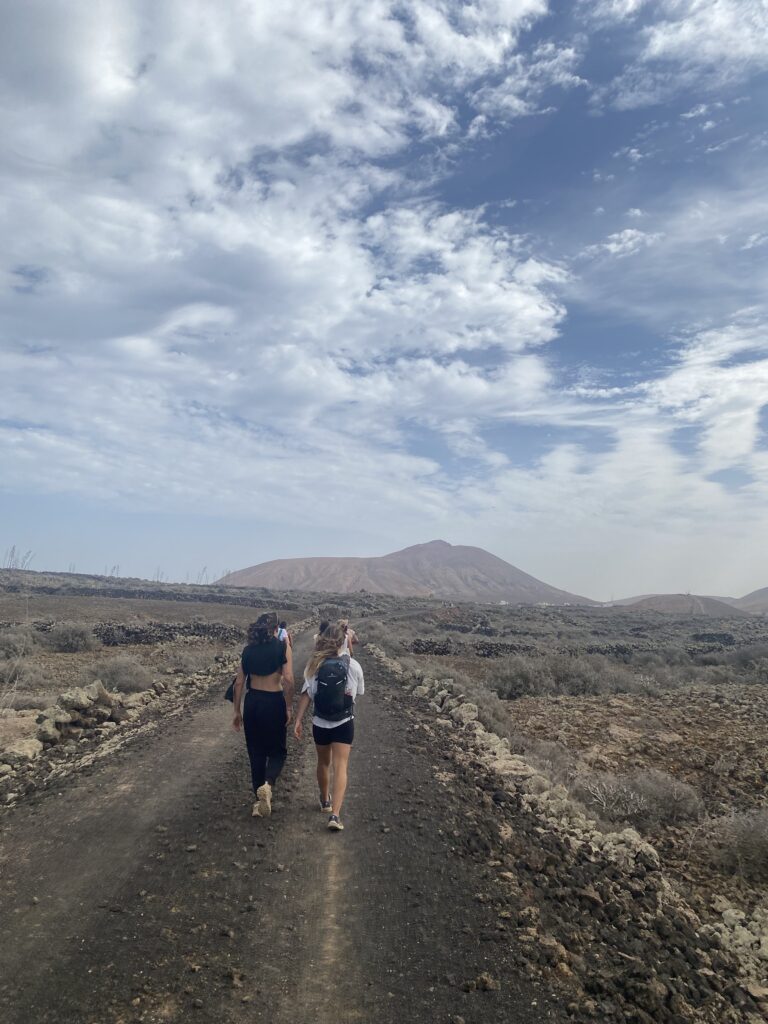
Qual è stata la chiamata che vi ha fatto avvicinare alla spiritualità e al Cammino di Sophia?
Sofia: per me è stata una chiamata molto forte per il luogo, il Perù. In un momento difficile della mia carriera ho sentito per qualche motivo di dover andare lì e quindi ho deciso di partire. Mia mamma, che conosceva Il Cammino di Sophia, mi ha suggerito di contattare Amanda, quindi sono arrivata a lei quasi per caso. Il viaggio non era stato pianificato e Amanda mi ha accolto anche se mi sono aggiunta al gruppo all’ultimo momento. Il Perù ha sicuramente cambiato la mia percezione su tantissime cose, per non dire la mia vita. Sono molto grata, specialmente perché era un momento particolarmente complicato della mia carriera e sono stata in grado di comprendere molte cose su me stessa, sul perché faccio quello che faccio e su ciò che vuol dire imparare ad apprezzare quello che ho attorno.
Marion: per me il Rezo è stata la prima esperienza con Il Cammino di Sophia. Ho conosciuto Amanda attraverso Sofia, che mi ha parlato del viaggio in Perù. Non avevo aspettative, ma avevo avuto qualche anticipazione sulla base dei racconti di Sofia.
Cosa vi ha spinto a voler partecipare al Rezo?
Sofia: penso di poter parlare per entrambe: sicuramente c’è una grandissima fiducia nei confronti di Amanda, delle donne che la circondano, del suo lavoro e dei suoi valori. Ci piaceva l’idea di passare questi tre giorni semplicemente in preghiera per l’umanità, senza nessun particolare riscontro sulle nostre vite. Abbiamo voluto esserci per portare la nostra energia e per sentire quella della altre persone.
Marion: penso che sia stata una grande opportunità essere connesse con la spiritualità ed essere connesse con gli altri. Essendo delle atlete, infatti, abbiamo questa “vita speciale” in cui siamo focalizzate su noi stesse per due anni poi apriamo gli occhi e ci rendiamo conto che esiste un mondo che non è lo sport. Questo ad esempio è quello che è successo quest’anno. Penso che questo sia un momento del cammino in cui siamo chiamate ad aprirci con le persone e a rendere lo sport qualcosa a cui aspirare che sia meno “cool”, ma più reale, concreto ed accessibile ai giovani. Siamo persone normali con le nostre difficoltà, tanto quanto gli altri, quindi penso che sia bello creare una realtà in cui ci sia un senso di unità che sia anche parte del nostro lavoro.
Sofia: penso anche che ci connettiamo con gli elementi tutti i giorni, passiamo tutta la nostra vita nell’acqua: quando siamo stanche, arrabbiate, felici, tristi… e il mare ci accoglie sempre permettendoci di lavorare con lui, indipendentemente da come ci sentiamo. A volte però vedi solo che è il tuo lavoro e ti dimentichi che sei in uno degli elementi più potenti e che ci sono il vento e il mare che collaborano con te. Penso quindi che sia importante essere davvero consapevoli di questo e saper chiedere il permesso al luogo, rispettandolo molto più di come siamo abituati a fare nello sport, dove a volte non c’è rispetto… In generale siamo molto più rispettose di altre persone, nel senso che non buttiamo bottiglie di plastica nel mare e se troviamo della spazzatura la prendiamo e la portiamo via, ma di certo potremmo essere molto più connesse con il mare. Questa è una cosa che mi piace molto del lavoro di Amanda.
Marion: potremmo avere una relazione molto più profonda con il mare. A volte andiamo là fuori come se stessimo andando dietro la scrivania perché il mare è davvero la nostra scrivania, per qualche anno e a volte per decenni. Tendiamo a dimenticarci di quanto il mare sia potente e penso che, quando ce ne dimentichiamo, lui sia il primo a ricordarcelo. È un grande step che ancora dobbiamo fare e mi auguro di dare un’ispirazione al mondo dello sport. È qualcosa su cui dobbiamo lavorare.
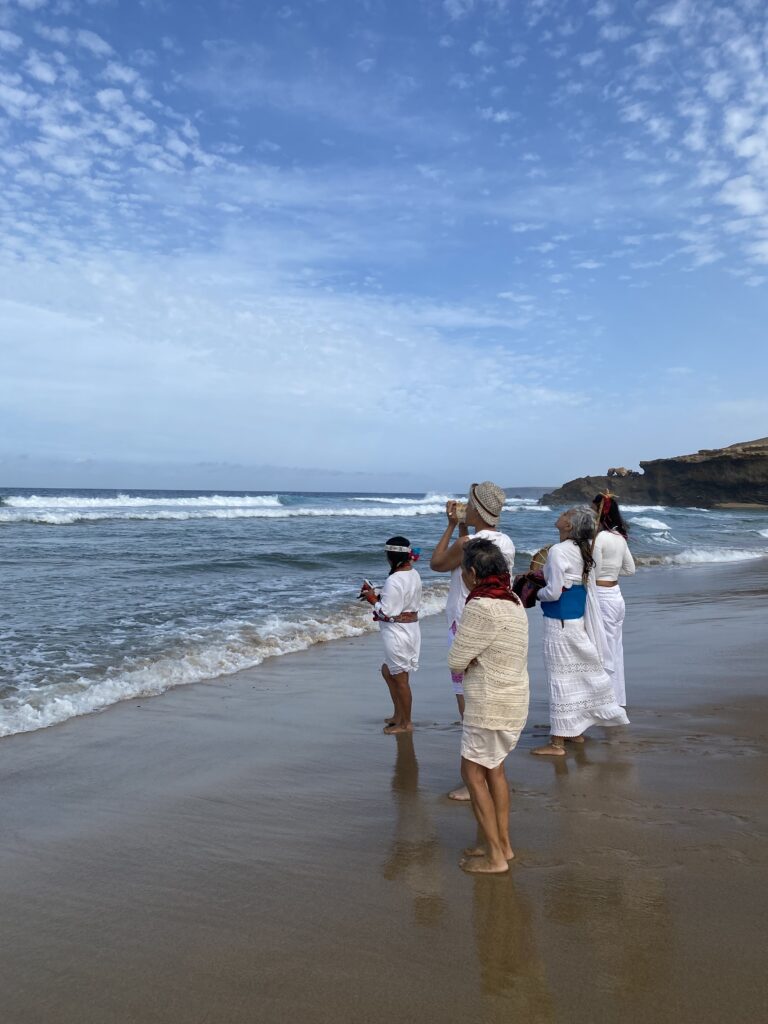
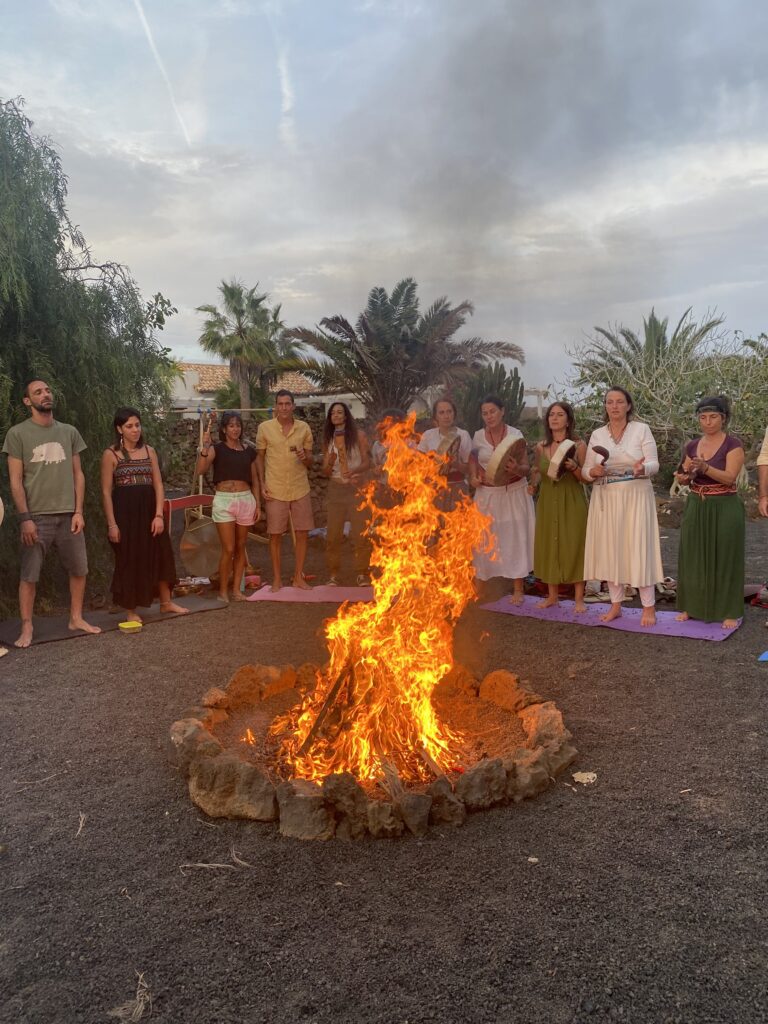
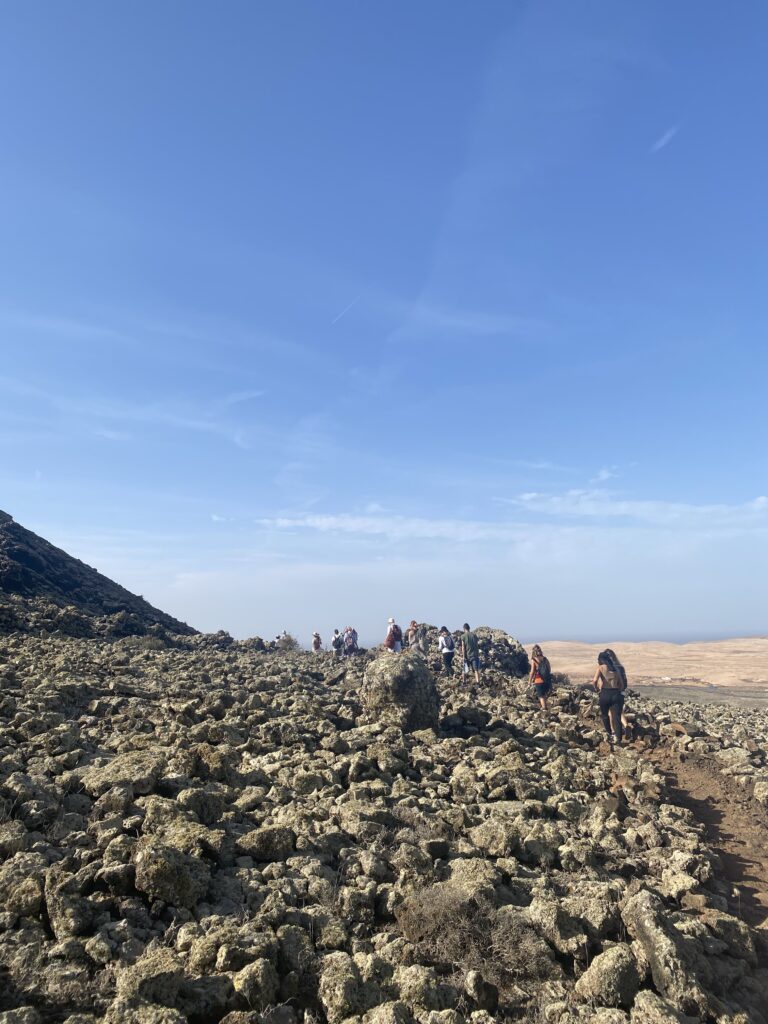
Questo lavoro di connessione che avete iniziato a sperimentare qui durante il Rezo è secondo voi un’integrazione necessaria nello sport a livello professionale?
Sofia: sì assolutamente, sarebbe proprio una necessità che le persone fossero un po’ più connesse, un po’ più rispettose. Sia la campagna (sportiva) che la vita sono un viaggio interiore e con gli elementi. In questo senso la campagna è una bella scuola di vita e sarebbe importante poterla fare per valori che siano più grandi del “voglio vincere”, “voglio arrivare alle Olimpiadi” o “voglio avere una medaglia” riuscendo a capire dove sono in quel momento, se mi trovo sul percorso giusto di vita, quello che mi circonda e la sua forza, a livello puramente umano al di là degli obiettivi sportivi. Riuscire a portare questo tipo di connessione con se stessi e con gli elementi nello sport è fondamentale e permette di fare un lavoro molto più significativo, anzichè una campagna fine a se stessa con la federazione e gli allenatori per arrivare a una medaglia che in fin dei conti significa poco. Un momento fondamentale per me durante il viaggio in Perù è stato quello in cui abbiamo salito la montagna dei 5 colori e quando ci siamo fermate Amanda mi ha guardato negli occhi e mi ha detto: “Oggi impari a perdere”. Lì mi ha insegnato una cosa che non avevo imparato in dieci anni di sport.
Negli ultimi quattro anni continuavo a perdere e continuavo a chiedermi perché, e forse l’ho capito su quella montagna. Forse, chi lo sa. Sicuramente questo tipo di lavoro e esperienze come il Rezo insegnano tanto.
Marion: Sì, penso sia una necessità a un certo punto nella carriera sportiva. Ci sono molti segnali che dall’esterno arrivano all’acqua, ma se stai lavorando nella direzione sbagliata o con le persone sbagliate non li cogli. Ed è quello che è successo a me ultimamente. Anche se amo il mio sport e adoro ogni singolo giorno in cui vado nel mare aperto, diventa impegnativo perché sono circondata da persone che non camminano come me o non vogliono raggiungere gli stessi obiettivi. Questa fase del lavoro è di comprensione. Comprendere che l’ambiente è molto prezioso e che a un certo punto può essere la chiave, totalmente slegato dal concetto di vittoria. Avere una consapevolezza del mondo che ti circonda ti fa comprendere molte cose oltre allo sport.
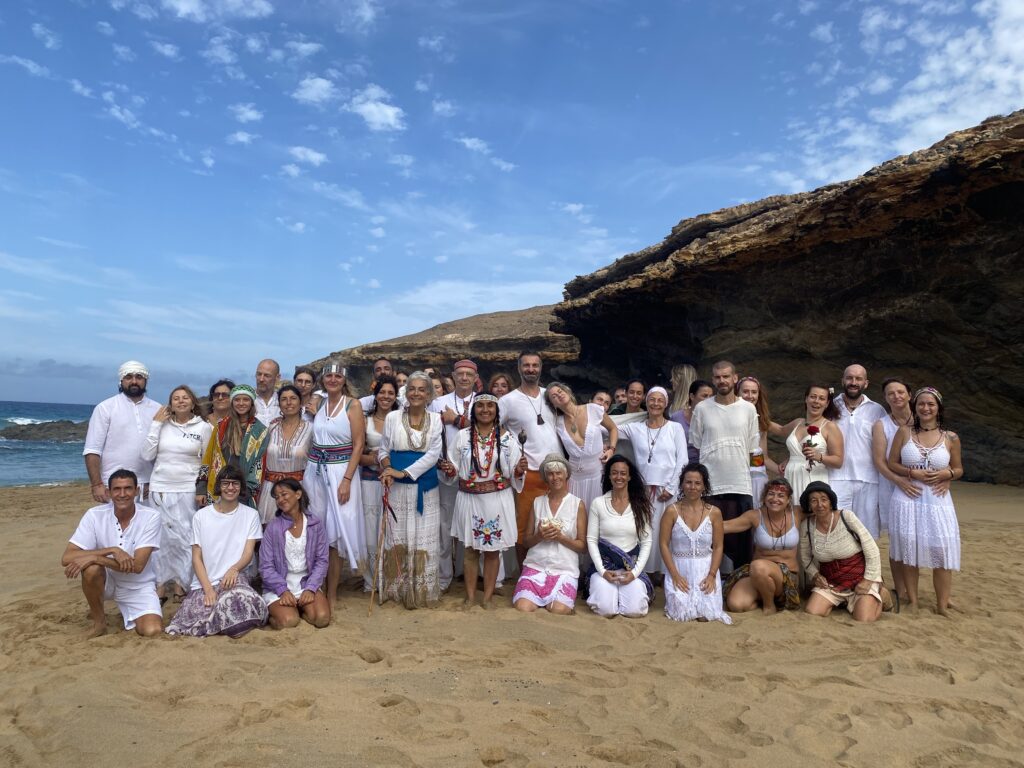
English version below
Sofia Tomasoni and Marion Couturier, two young professional athletes, share in this interview their experience with Il Cammino di Sophia during three days of Rezo in Fuerteventura. Both the athletes found in that journey and spirituality a way to reflect on their lives and work, rediscovering the strong connection they share with the sea and the wind.
What was the calling that brought you closer to spirituality and Il Cammino di Sophia?
Sofia: For me, it was a very strong calling to the place, Peru. During a difficult moment in my career, I felt the need to go there for some reason, so I decided to leave. My mother, who knew about Il Cammino di Sophia, suggested I contact Amanda, so I ended up reaching out to her almost by chance. The trip was not planned and Amanda welcomed me even though I joined the group at the last minute. Peru definitely changed my perception on many things, if not my life itself. I am very grateful, especially because it was a particularly challenging time in my career, and I was able to understand many things about myself, why I do what I do, and what it means to learn to appreciate everything around me.
Marion: For me, the Rezo was my first experience with Il Cammino di Sophia. I met Amanda through Sofia, who told me about the trip to Peru. I had no expectations, but I had some idea of what to expect based on Sofia’s stories.
What motivated you to participate in the Rezo?
Sofia: I think I can speak for both of us: there is certainly a great deal of trust in Amanda, in the women around her, in her work and values. We liked the idea of spending these three days simply in prayer for humanity, without any particular focus on our own lives. We wanted to be there to bring our own energy and to feel that of others.
Marion: I think it was a great opportunity to connect with spirituality and with others. As athletes, we live this “special life” where we are focused on ourselves for two years, and then we open our eyes and realize there is a world beyond sport. This is what happened to me this year. I think this is a moment on our path where we are called to open up to others and make sport something to aspire to that is less “cool,” but more real, concrete, and accessible to young people. We are normal people with our own difficulties, just like everyone else, so I think it’s beautiful to create a reality where there’s a sense of unity and that is also part of our work.
Sofia: I also think that we connect with the elements every day — we spend our entire lives in the water: when we’re tired, angry, happy, or sad… and the sea always welcomes us, allowing us to work with it, no matter how we feel. But sometimes, we only see it as our job and forget that we’re in one of the most powerful elements, with the wind and the sea collaborating with us. I think it’s important to be truly aware of this and to learn to ask permission from the place, respecting it far more than we’re used to doing in sport, where sometimes there’s no respect… Generally, we’re much more respectful of other people, in the sense that we don’t throw plastic bottles in the sea, and if we find trash, we pick it up and take it with us, but we could definitely be much more connected with the sea. This is something I really appreciate about Amanda’s work.
Marion: We could have a much deeper relationship with the sea. Sometimes we go out there as if we’re heading to a desk, because the sea is really our desk, for years and sometimes for decades. We tend to forget how powerful the sea is, and I think that, when we forget it, it’s the first to remind us. It’s a big step we still need to take, and I hope to inspire the world of sport. It’s something we need to work on.
Do you think the connection you’ve started experiencing here during the Rezo is a necessary integration in professional sports?
Sofia: Yes, absolutely. It’s really a necessity for people to be more connected, more respectful. Both the athletic journey and life are an inner journey with the elements. In this sense, sport is a great school of life, and it would be important to approach it with values that are bigger than “I want to win,” “I want to go to the Olympics,” or “I want to win a medal,” and to be able to understand where I am at a certain moment in time, whether I’m on the right path in life, what’s around me, and the strength of it, on a purely human level, beyond athletic goals. Being able to bring this kind of connection with oneself and with the elements into sport is essential and allows for much more meaningful work, rather than just focusing on a campaign with the federation and coaches to win a medal, which in the end means very little. A key moment for me during the trip to Peru was when we climbed the Rainbow Mountain. When we stopped Amanda looked me in the eyes and said: “Today you learn to lose.” That’s where she taught me something I hadn’t learned in ten years of sport. Over the last four years, I kept losing and kept asking myself why, and maybe I understood it on that mountain. Maybe, who knows. For sure, this kind of work and experiences like the Rezo teach a lot.
Marion: Yes, I think it’s a necessity at a certain point in an athlete’s career. There are many signals that come from the outside to the water, but if you’re working in the wrong direction or with the wrong people you don’t pick them up. And that’s what’s been happening to me lately. Even though I love my sport and I cherish every single day I spend in open water, it becomes challenging because I’m surrounded by people who don’t walk the same path or don’t want to achieve the same goals. This phase of the work is about understanding. Understanding that the environment is very precious and that, at a certain point, it can be the key — completely detached from the concept of victory. Being aware of the world around you helps you understand many things beyond sport.
